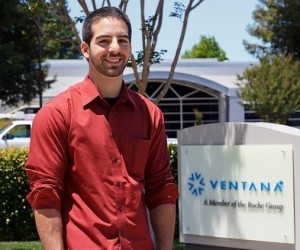Collecting Sales Tax – 20 Years of Waiting
Posted by Peter J. Reilly on his Forbes blog “Passive Activites” June 3, 2012.
Annette Nellen is a professor at San Jose State University. She has an excellent blog on tax policy called 21st Century Taxation. Professor Nellen was selected by the AICPA to tesitfy before Congress on the need for comprehensive tax reform.
By Annette Nellen, CPA, Esq.
In this Internet age, I’m surprised by the number of catalogs that show up in my physical mail box each week. I don’t order from them, but they do sometimes cause me to visit the sender’s website and place an order, in addition to reminding me to shop, I assume these catalogs help delay the financial collapse of the U.S. Post Office, as well.
The catalogs are also a reminder of a decades old tax issue: how can states collect sales tax on purchases their residents make from out-of-state companies?
Despite the world of catalog commerce being greatly expanded by the world of e-commerce, states must still rely on a catalog-era U.S. Supreme Court case that limits their ability to collect sales and use tax.
This year, the case – Quill Corp. v. North Dakota, 504 U.S. 298 (1992), reached its 20 year anniversary, still intact. Despite technological advances, the sales tax collection problem Quill addresses remains. In 1992, the Court observed that Congress was where states should go for help. Twenty years later, states still wait for that help.
So, what happened in Quill?
Without stores and employees in the state, sellers also save the cost of collecting sales tax in that state. In the 1980s, North Dakota thought that no longer made sense given how easy it was for companies to do business by just mailing catalogs. So it decided to challenge a 1967 Supreme Court ruling (National Bellas Hess) that stressed the need for physical presence for sales tax collection obligations.
In 1992, the Court held that there was no due process problem with a state imposing sales tax collection obligations on an active seller. However, the Court found a commerce clause problem with non-present sellers being subject to sales tax collection due to the existence of thousands of jurisdictions with non-uniform sales tax rules. Requiring out-of-state businesses to deal with that administrative nightmare would impede interstate commerce. So, the sales tax collection standard that has held since 1992 is that a state may only make a seller collect sales tax if the seller has a physical presence in the state.
With only the commerce clause standing in the way of broader sales tax collection, the court noted: “Congress is now free to decide whether, when, and to what extent the States may burden interstate mail order concerns with a duty to collect use taxes.”
As we all know due to the number of times we are not charged sales tax for items ordered online or via catalogs, Congress has not exercised its authority under the commerce clause to change the Quill result. In theory, states still get the revenue because buyers are to self-assess use tax when sellers are not required to charge sales tax. Of course, in practice, states do not see a lot of that revenue. States would do much better if allowed to collect sales tax from thousands of vendors rather than hope for use tax from millions of consumers. States, as well as many sellers, want Congress to take action.
There are currently three proposals before the 112th Congress to change the holding of Quill:
The Main Street Fairness Act (H.R. 2701 and S. 1452)
The Marketplace Equity Act of 2011 (H.R. 3179)
The Marketplace Fairness Act (S. 1832)
The bills primarily differ in what a state would have to do to be allowed to collect sales tax from out-of-state vendors and the size of the de minimus rule to exempt small vendors from collection.
Congress knows states need the revenue and that “main street” businesses want the improved price competition that should result when their out-of-state competitors have to charge sales tax. We’ve got a few more months to see if 2012 will be the year Congress finally exercises its commerce clause authority that the Supreme Court reminded it of 20 years ago. What is your prediction?
For more information on the sales tax collection issue, see the author’s “affiliate nexus” website and 21st Century Taxation website and blog.
You can follow me on twitter @peterreillycpa.



